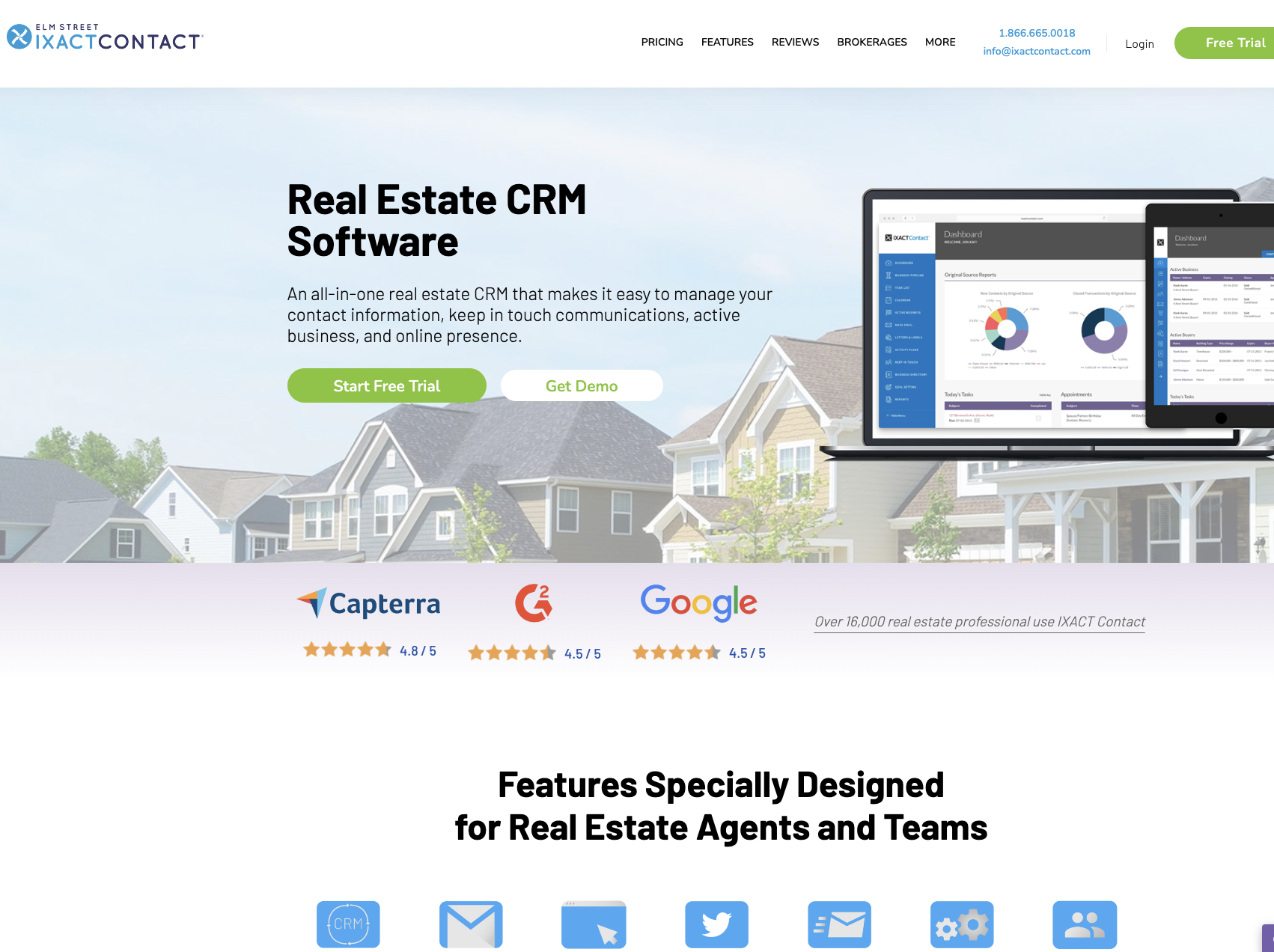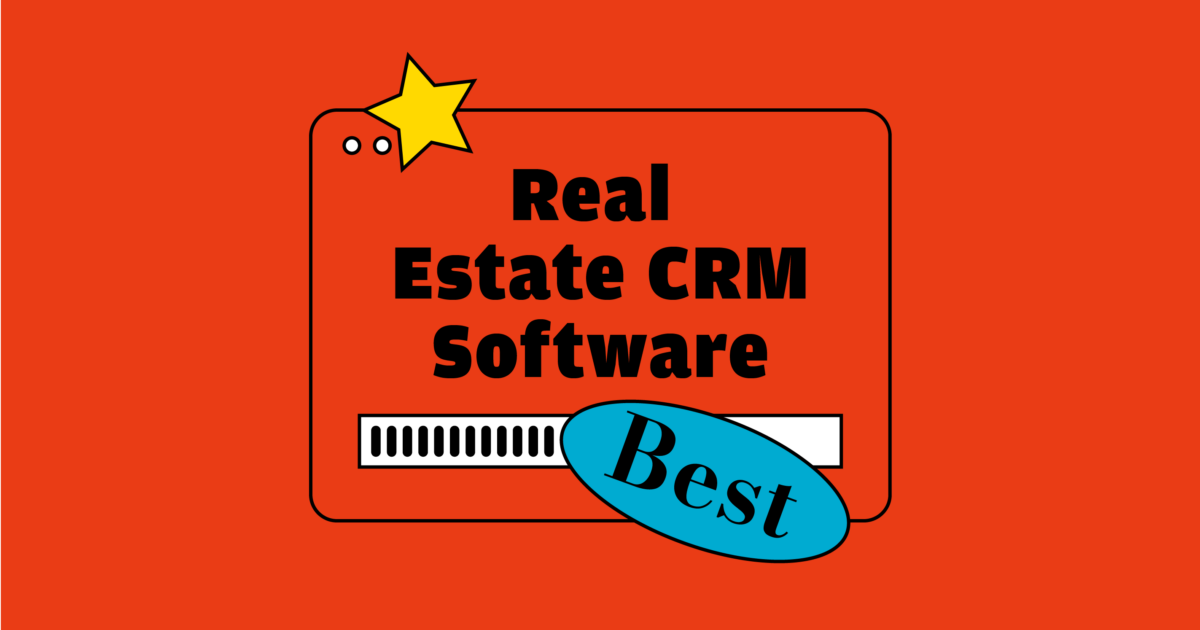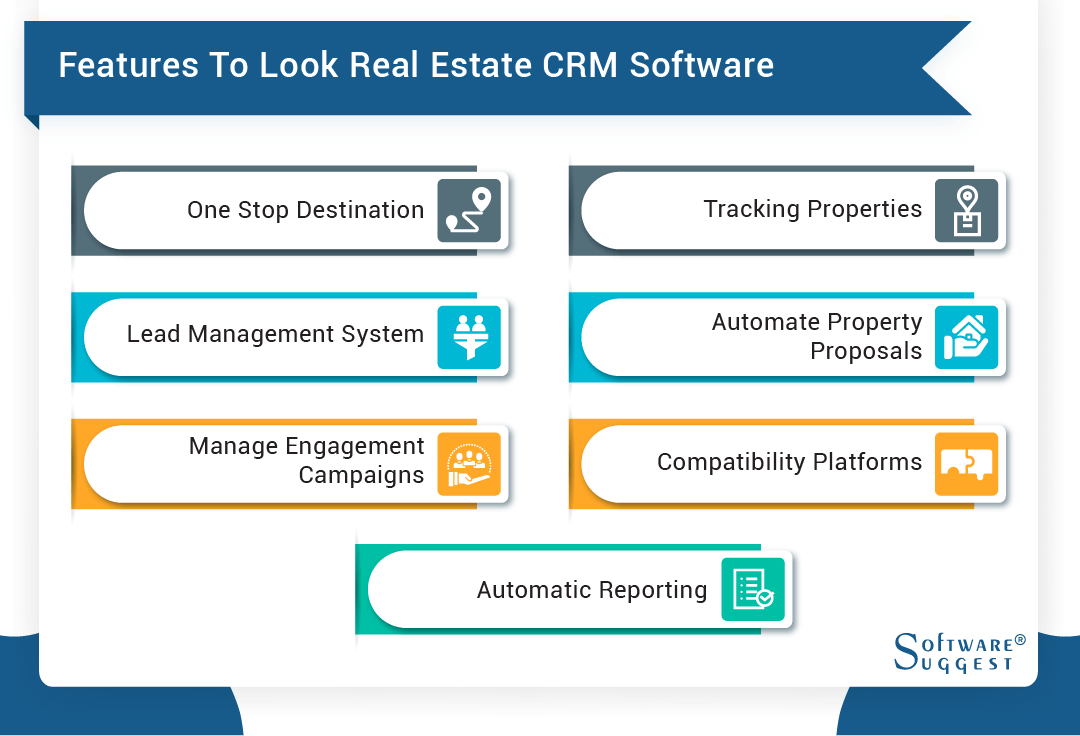Best CRM Software for Real Estate: A Comprehensive Guide
Starting with the Best CRM Software for Real Estate, this guide offers a detailed exploration of how CRM software plays a crucial role in the real estate industry. From enhancing efficiency to improving client relationships, this topic delves into the core aspects that make CRM software indispensable for real estate professionals.
Moving on to discuss the top features to consider when choosing CRM software tailored for real estate needs, this guide provides valuable insights to help agents make informed decisions.
Overview of CRM Software for Real Estate

CRM software plays a crucial role in the real estate industry by helping professionals manage relationships with clients, streamline processes, and improve overall efficiency. Let's delve into the key features that make CRM software suitable for real estate professionals and how it can benefit businesses in this sector.
Key Features of CRM Software for Real Estate
- Centralized Database: CRM software allows real estate professionals to store all client information, property details, and communication history in one centralized database, making it easy to access and manage.
- Lead Management: It helps in tracking leads, automating lead generation, and nurturing leads through personalized communication, ultimately increasing conversion rates.
- Automated Workflows: CRM software automates repetitive tasks, such as sending follow-up emails, scheduling appointments, and generating reports, saving time and improving productivity.
- Integration Capabilities: The ability to integrate with other tools and platforms, such as email marketing software, social media platforms, and real estate listing websites, enhances the functionality of CRM software.
- Customization Options: Real estate professionals can customize the CRM software to suit their specific needs, including creating custom fields, workflows, and reports tailored to their business requirements.
Streamlining Processes and Improving Efficiency
- Enhanced Communication: CRM software enables real estate professionals to communicate effectively with clients through automated emails, text messages, and reminders, ensuring timely and personalized interactions.
- Task Management: By organizing tasks, appointments, and deadlines in one platform, CRM software helps agents stay on top of their schedule and prioritize activities efficiently.
- Data Analytics: The reporting and analytics features of CRM software provide valuable insights into client behavior, sales performance, and market trends, empowering real estate businesses to make informed decisions and optimize their strategies.
- Improved Customer Service: With access to detailed client profiles, transaction history, and preferences, real estate professionals can deliver a personalized and exceptional customer experience, building long-lasting relationships and fostering loyalty.
Top Features to Look for in CRM Software for Real Estate
When choosing a CRM software for real estate, it is essential to consider specific features that cater to the unique needs of the industry. Here are some top features to look for:
Contact Management
Contact management is crucial for real estate agents to keep track of their clients, leads, and other important contacts. A good CRM software should allow users to store and organize contact information efficiently, including details like names, phone numbers, email addresses, and notes.
Lead Tracking
Lead tracking is another essential feature for real estate professionals. A reliable CRM software should enable users to capture and manage leads effectively, track their interactions with leads, and prioritize follow-ups based on lead activity and engagement.
Pipeline Management
Pipeline management is vital for real estate agents to track the progress of deals and ensure timely follow-ups. A robust CRM software should provide a visual representation of the sales pipeline, allowing users to monitor each stage of the sales process, identify bottlenecks, and forecast future revenue.
Customization Options
Customization options are crucial for real estate-specific needs, such as property listings, client preferences, and transaction details. A good CRM software should offer flexibility in customizing fields, workflows, and reports to adapt to the unique requirements of the real estate industry.
Integrations with Other Real Estate Tools
Integration with other real estate tools is essential for streamlining workflows and maximizing productivity. Look for CRM software that seamlessly integrates with MLS listings, email marketing platforms, document management systems, and other tools commonly used in the real estate industry.
Benefits of Using CRM Software for Real Estate Agents

Using CRM software can significantly benefit real estate agents in various ways. It helps agents nurture leads, build long-term relationships with clients, automate tasks, improve client retention, and boost sales.
Nurturing Leads and Building Relationships
- CRM software allows agents to track interactions with leads, ensuring timely follow-ups and personalized communication.
- Agents can segment leads based on preferences and behavior, enabling targeted marketing strategies.
- By maintaining a database of client information, agents can provide better service and build trust with clients.
Impact of Automation on Tasks
- Automation in CRM software streamlines follow-ups, reminders, and communication, saving agents time and ensuring no leads slip through the cracks.
- Automated workflows can trigger responses based on predefined criteria, enhancing efficiency in client management.
- Agents can schedule emails, appointments, and tasks in advance, improving organization and productivity.
Improving Client Retention and Boosting Sales
- CRM software helps agents stay engaged with clients even after deals are closed, fostering long-term relationships and increasing referrals.
- Agents can analyze client data to understand preferences and tailor their services, leading to higher satisfaction and retention rates.
- By providing personalized experiences and timely communication, agents can increase repeat business and drive sales growth.
Implementation and Adoption Strategies for CRM Software
Implementing and adopting CRM software in a real estate agency can greatly enhance productivity and efficiency. However, it is important to follow best practices to ensure a smooth transition and successful utilization of the platform.
Best Practices for Implementing CRM Software
- Define clear objectives: Before implementing CRM software, clearly Artikel the goals and objectives you aim to achieve with the platform.
- Customize for real estate: Tailor the CRM software to meet the specific needs of a real estate agency, such as tracking property listings, managing client interactions, and automating follow-ups.
- Engage stakeholders: Involve key stakeholders, such as agents and staff, in the implementation process to ensure buy-in and support.
- Provide adequate training: Offer comprehensive training sessions to familiarize agents and staff with the CRM platform and its functionalities.
Tips for Training Agents and Staff
- Hands-on practice: Encourage agents and staff to actively use the CRM software through hands-on practice sessions.
- Offer ongoing support: Provide continuous support and resources to address any questions or challenges that arise during the training process.
- Emphasize benefits: Highlight the benefits of using the CRM software, such as improved organization, streamlined communication, and enhanced client relationships.
Challenges During Adoption and How to Overcome Them
- Resistance to change: Address resistance by clearly communicating the advantages of CRM software and providing support to ease the transition.
- Data migration issues: Ensure a smooth transition of data by conducting thorough data cleaning and validation before migrating to the CRM platform.
- Lack of user adoption: Encourage user adoption by showcasing success stories, offering incentives, and regularly monitoring usage and feedback.
Final Conclusion

In conclusion, this guide has shed light on the significance of CRM software in the real estate sector and highlighted key strategies for successful implementation. By leveraging the benefits of CRM software, real estate agents can streamline their operations, enhance client interactions, and drive business growth effectively.
Top FAQs
What sets CRM software apart in the real estate industry?
CRM software offers specialized features like contact management, lead tracking, and pipeline management tailored to meet the unique needs of real estate professionals.
How can CRM software benefit real estate agents?
CRM software helps agents nurture leads, automate tasks, and improve client retention, ultimately boosting sales and enhancing productivity.
What are some common challenges during CRM software adoption?
Challenges may include resistance to change, training difficulties, and integration issues, which can be overcome through proper planning and support.